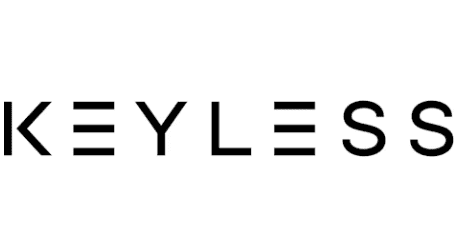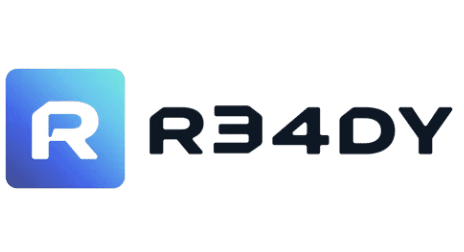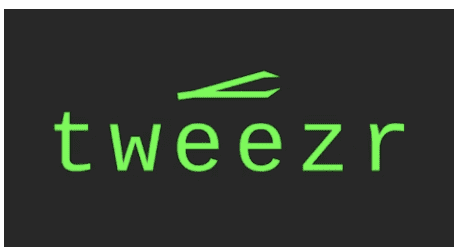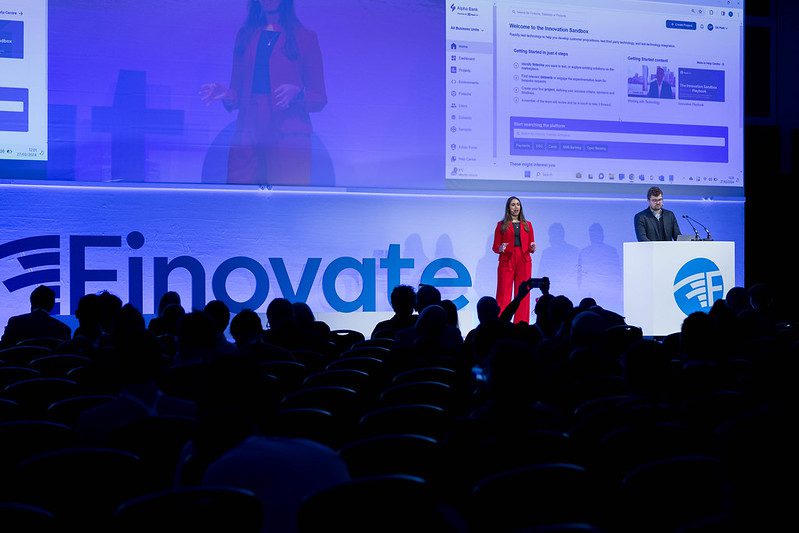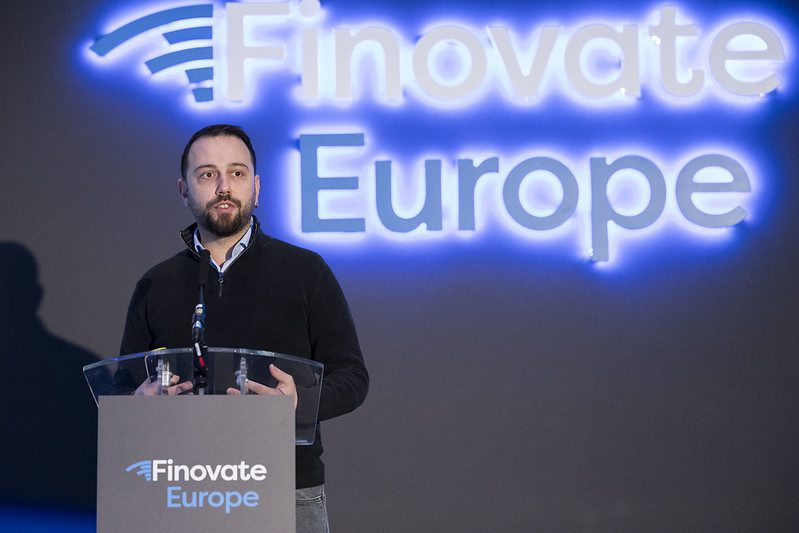
At Finovate conferences, our special track sessions give attendees an opportunity to dive deep into specific industries and themes within fintech. Via keynote addresses, fireside chats, and power panels, our Finovate tracks provide time for more extended analysis, discussion, and even debate about key developments in fintech and financial services.
This year at FinovateEurope, we held five separate tracks covering AI, payments, lending, customer experience, and banking, risk, and regulation. Below are our summaries, reviews, and key takeaways from the presentations in each of those tracks.
Julie Muhn, Senior Research Analyst, Finovate
Customer Experience
During the Customer Experience Track, Taner Akcok’s keynote address titled “Enabling Hyper-Personalization” emphasized that today’s financial institutions must go beyond transactional relationships to deliver deeply personalized, always-on experiences that meet the high expectations set by big tech companies. Achieving this level of personalization requires an API-first strategy, where data, modern technology platforms, and advanced APIs combine to enable real-time, tailored customer interactions. Crucially, financial institutions no longer need to be the primary channel through which products and services are offered. Instead, banks can embed themselves within broader business management ecosystems, using customer data from procurement systems, accounting platforms, and other third-party tools to power proactive financial insights, such as tax preparation assistance or financial health recommendations. Ultimately, Akcok noted, this shift moves banks from product providers to intelligent financial assistants, delivering insights and solutions based on life events and real-time business needs.
Moderated by Anette Broløs, Director and Co-Founder of Finthropology, the customer experience panel explored the customer experience revolution. Panelists stressed the importance of proactive engagement, where banks anticipate customer needs based on behavior, data, and life events—rather than reacting to requests. Banks need to balance deep personalization with ethical data usage, ensuring they treat each customer as an individual while considering accessibility and usability for users at all experience levels. The panel also highlighted the dangers of building overly complex feature sets designed for power users, as it is better to tailor experiences for beginners and casual users as well. Ultimately, cross-functional collaboration within financial institutions is critical to delivering these personalized experiences, breaking down internal silos to ensure all departments—from product teams to customer support—work together to design and deliver cohesive, customer-centric solutions.
Banking, Regulation, and Risk
The Banking, Regulation, & Risk track at FinovateEurope provided a comprehensive overview of the evolving regulatory landscape shaping Europe’s financial sector. In his keynote, Thomas Zink from IDC Financial Insights highlighted how the rapid pace of regulatory change—from DORA and PSD3 to FiDA, eIDAS 2.0, and the Digital Markets Act (DMA)—is placing an immense compliance burden on European financial institutions, which may put them at a competitive disadvantage compared to international peers. While PSD3 aims to simplify the payments ecosystem by merging payments and e-money rules, it also references DORA for operational resilience, GDPR for data protection, and introduces new obligations for third-party risk management and incident reporting. Meanwhile, FiDA will broaden open finance obligations, and eIDAS 2.0 will introduce a pan-European digital wallet for seamless identification, onboarding, and trust services across the EU. These changes promise greater transparency and interoperability but raise concerns about security, implementation complexity, and long-term regulatory fatigue.
The panel discussion, which was moderated by Omdia Principal Analyst Philip Benton, expanded on Zink’s discussion of regulatory challenges, particularly focusing on DORA and digital identity frameworks. Panelists stressed that while DORA’s direct applicability is limited to the EU, similar resilience and outsourcing requirements are already emerging in the UK, with the FCA increasingly focused on third-party oversight and ensuring financial institutions have robust contingency plans for operational failures. The panel also addressed the growing role of AI in risk management, emphasizing the importance of explainability. If firms can clearly explain to regulators how their AI works, it is a strong indicator they understand it themselves. Effective vendor management was another hot topic, with panelists warning against excessively long infrastructure contracts that make timely upgrades difficult, potentially exposing firms to operational and cybersecurity risks. Ultimately, the track underscored that collaboration, transparency, and proactive risk management—both internally and with third-party partners—will be critical to navigating Europe’s increasingly complex regulatory environment.
Theodora Lau, Author, Analyst, Podcaster, Founder of Unconventional Ventures
Artificial Intelligence
It’s been over 820 days since November 30, 2022, when OpenAI launched ChatGPT, and the world has never been the same. According to OpenAI, ChatGPT has amassed more than 400 million weekly active users, up 30% in the last couple of months. Of course, we all know that AI is more than just generative AI. As a technology, AI has been around since the early 1940s, and it has been used in banking and other industries for quite a while. But ChatGPT and the generative AI race that followed have changed the narrative—simply because now this is a tool that we can all use and play with. We can touch and feel it firsthand, and we can do things that we have never done before. One can certainly feel the energy buzzing at FinovateEurope, especially during the extended AI track this year, where we hosted four presentations and two panel discussions. There has been a noticeable shift in conversations from the hallways to the stage, where we have gone from a cautious exploration mode to one where we share learnings and war stories.

We are at an interesting inflection point. While many have high hopes for the technology and promising use cases abound, ranging from customer service, personalization, and fraud management to workflow automation, market analysis, and software development, we must also go in with eyes wide open to potential pitfalls if we are not careful. In their separate keynote addresses, Aurélie L’Hostis from Forrester, along with Nombuso Matsape and Rahul Aggarwal from ICBC Standard Bank, pointed out some of the top hurdles that our industry faces, including skills gaps, ethical and privacy challenges, regulatory pressure, operational complexities, security concerns, and trust. So where can we gain value from AI, and how can we best manage change while accelerating the right adoption, as Rich Wham from Airia rightfully asked?
As the panels suggested, beyond the tech stack readiness and implementation strategies (for example, selecting the right use cases to begin), success will depend on people and culture, as well as business buy-in, where we must focus on generating real value. A good governance and risk management framework is also key. As Sajid Iqbal pointed out afterwards, AI is an F1 car—fast, but useless without brakes. While some might quip that the future of finance is agentic AI, I believe we still have a bit of a way to go.
David Penn, Research Analyst, Finovate
Payments
This session features Claire Simpson, Senior Manager, APP Fraud Policy Lead, Payment Systems Regulator (PSR), discussing the challenge of authorized push payment fraud, along with our Power Panel on the growth of the payments market and opportunities for banks. Participating in our Payments Power Panel were Pragya Jauhari, Senior Product Manager, Fintech, Booking.com; Alexandre Stervinou, Director, Banque De France; Leticia Costa, Executive Director, Cash Management Sales, JP Morgan Payments; and Andrew Stewart, CRO Europe, Thunes. Moderated by Zil Bareisis, Director, Retail Banking & Payments Practice, Celent.
We began the conversation on payments with a discussion on the challenge of fraud, particularly fraud and financial crime like authorized push payment (APP) fraud to which innovations like faster payments are especially vulnerable. In her keynote address, Claire Simpson, Senior Manager, APP Fraud Policy Lead, PSR, explained this vulnerability, the rise of “psychologically based” fraud, and the way this particular type of fraud can erode trust between financial institutions and their customers. Simpson also underscored what entities like PSR have done to help both FIs and consumers better manage the fraud threat—such as advancing solutions like Confirmation of Payee and the Contingent Reimbursement Model (CRM) Code, which require banks to reimburse customers who are fooled into making fraudulent payments. Simpson noted that it was key for financial institutions on both sides of the fraudulent transaction—the sending and receiving institutions—to have a role to play in making whole customers who have been impacted by APP fraud. That said, her message in large part was that fighting fraud was not simply a task for regulators and banks. Technology companies, including fintechs, help by creating innovations that make it easier for consumers to identify and protect themselves from scams and fraud, as well as solutions that facilitate intelligence sharing between financial institutions about current fraud threats.
Our Payment Power Panel featured a wide-ranging discussion on a $2.85 trillion market that is expected to reach $4.78 trillion by 2029. Moderated by Zil Bareisis, Director, Retail Banking & Payments Practice, Celent, the panel looked at how banks can reimagine payments to take advantage of this sizable growth opportunity. To this end, the panelists reminded attendees that, from the merchants’ point of view, “payments are a way of facilitating a relationship” and, as such, issues of trust and security are just as important as speed. In line with remarks from Simpson’s keynote, the panelists underscored the role of regulations in helping drive innovation and noted that as payments become more ubiquitous via open finance and embedded solutions, it will become all the more important for non-traditional actors participating in the financial services and banking space—such as telcos and platforms— to be covered by the same sort of regulatory umbrella that governs the current players in the payments space. When asked what areas of payments our panelists are most optimistic about for growth, the top areas noted were cross-border payments, embedded finance, and stablecoins—although there was also a great deal of enthusiasm about alternative payment methods (APMs), the rise of domestic payment schemes, and the challenges and opportunities of serving digital nomads and workers in the gig economy.
Lending
This session featured a fireside chat with Joel Perlman, Co-Founder and Senior Managing Director, OakNorth; an address on self-driving finance and agentic AI from Varun Ghai, Associate Vice President, NewGen Software; and a Power Panel on BaaS-powered embedded lending featuring Ishtiaq M. Ahmed, Senior Product Manager, Emerging Tech, Innovation & Ventures, HSBC; Joris Hensen, Initiator and Co-Lead Deutsche Bank API Program, Deutsche Bank; Olaf ten Duis, Lead Embedded Lending, Rabobank; and Ram Devanarayanan, Head of Business Consulting, Infosys Finacle Europe. Moderated by Philippa Ushio, Managing Director, Prosek Partners.

Our conversation on lending in financial services began with a fireside chat with OakNorth co-founder Joel Perlman. Perlman highlighted the firm’s work in what he called the “middle-market” of businesses that are typically overlooked by banks and traditional lenders. This issue is especially acute in the UK, Perlman explained, because of the relative dominance of a few major entities that represent as much as 90% of lending to enterprises. This compares to about 25% in the US. Perlman pointed out that lenders often turn away from certain industries as borrowers because of poor results in the past or from a lack of nuance that prevents them from separating the wheat from the chaff. As one example, Perlman noted that a retrenchment from lending in a sector broadly defined as, for example, retail apparel, may prevent lenders from serving worthy borrowers in a subset of that field, such as yoga pants and athletic clothing. To this point, Perlman acknowledged the role of enabling technologies such as machine learning and AI to help lenders make more discerning assessments, but asserted that “precision” and the basics of good lending matter as much “or more.”
Varun Ghai, Associate Vice President, NewGen Software, discussed the role of self-driving finance and agentic AI in reinventing business lending. In his keynote address, Ghai highlighted the role of data science and low-code technology to bring greater speed and efficiency to the business lending process. He explained the challenges in business lending, from its inherent complexity and extensive documentation requirements to both current and emerging regulatory hurdles. In response, fintechs and innovators like NewGen Software deliver technologies that provide end-to-end automation to streamline workflows and reduce manual data entry, as well as AI-driven decision-making to take guesswork out of the process. Furthermore, NewGen leverages a low-code approach that boosts flexibility and helps to lower operational costs by as much as 50%.
The Lending track concluded with a lively Power Panel discussion that examined the current state of BaaS-powered embedded lending. Among the key takeaways of the conversation was the role of APIs, a desire to move “beyond BNPL,” and the growing importance of technologies like AI—especially explainable AI—in helping ensure transparency in the lending process as well as promote customer education. The customer was very much at the center of the panelists’ thinking, noting that customer preferences are dynamic and changing, but that change often comes at a slower pace than financial institutions and fintechs, determined to provide the latest innovations to their customers, often expect. Here, institutions were advised by panelists to focus on helping customers “make the right decisions at the right time” and to fashion their offerings with this goal in mind. Institutions also need to be aware of regional differences that might favor, for example, credit cards over newer embedded lending solutions, and be ready to meet those customers where they are rather than where an institution or a fintech innovator might otherwise expect them to be.










